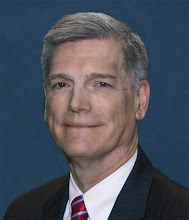
An economist, an engineer, and a physicist are marooned on a deserted island. One day they find a can of food washed up on the beach and contrive to open it. The engineer said: "let's hammer the can open between these rocks". The physicist said: "that's pretty crude. We can just use the force of gravity by dropping a rock on the can from that tall tree over there". The economist is somewhat disgusted at these deliberations, and says: "I've got a much more elegant solution. All we have to do is assume a can-opener."In an op-ed appearing in the August 31 Washington Post, David A. Fahrenthold discusses the practical realities glossed over in former vice president Al Gore's call for converting to "clean electricity" in 10 years. Central to Mr. Fahrenthold's piece is the recognition that the nation's electrical infrastructure represents the cumulative investment of trillions of dollars. Replacing this massive amount of capital assets in an orderly, affordable (i.e., responsible) manner will take time - more than Mr. Gore's impressive-sounding, but unrealistic 10-year deadline.
Electricity providers are compelled by their state public utility commissions to manage capital assets responsibly. "Responsibly" means shepherding those assets to ensure that in the long term a fitting balance is maintained among all the competing interests, including costs to rate payers, environmental impacts, return to shareholders, and so forth. This requires careful analysis and long range planning. It isn't done with sound bites or easy assumptions.

Comments
I Emailed him the correction, but the report wasn't corrected when last I checked.
The concept of capacity factors is critical, particularly to renewables with intermittancy issues. Sadly this is often confused or overlooked by the MSM.
In the best locations, wind turbines might give a 35% CF. They can't just build them anywhere and expect to get that kind of performance.
What's overlooked also, but very rarely mentioned, ist that unlike with conventional power plants with low capacity factors, you CANNOT just up the number of wind turbines or solar panels to make up for it. A capacity factor of 30-35%, because the wind does not blow at times, is NOT made up by building 3 of them. Because if the wind does not blow for one, it does not blow for three either.
Wind power advocates would basically build a 12 cylinder engine into a car that needs only a 4-cylinder. They would add on another 8 cylinders in case the fuel for 4 cylinders runs out.
I 'gave' them 35% to keep the calculation conservative and easily defend-able. You are correct though, as the capacity factor drops, more (theoretical) turbines would be required.
A good windmill salesman can overcome that consideration; especially if he is selling windmills to somebody who is spending other people's money so that he can feel good.